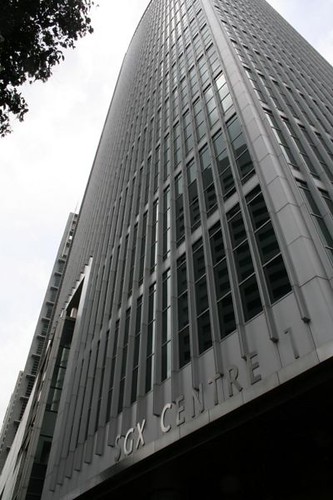 Singapore interest rates likely to fall further
Singapore interest rates likely to fall further
Fed cut and robust Sing$ could push interbank lending rate below 1%
Nicholas Fang
The Straits Times
Monday, 24 March 2008
Singaporeans can expect cheaper mortgages but lower savings and fixed deposit rates in the months to come.
This is after a move by the United States Federal Reserve to slash a key US interest rate last week.
The Fed had cut three-quarters of a point off its federal funds rate, bringing it to 2.25%, to fight a mushrooming credit crisis and a slowing US economy.
Economists in Singapore said the lowering of the Fed funds rate will have a knock- on effect in the Republic.
The Singapore Interbank Offered Rate (Sibor), or the rate at which banks lend to one another, tends to track the Fed rate.
Citigroup economist Kit Wei Zheng said: 'For Singapore rates, the trend is downwards. We expect the Fed to cut its rate to 1% and Singapore should follow with a lag.'

He lowered his forecast for the
Sibor, estimating it would fall to as low as
0.75% by the end of the third quarter, down from an earlier estimate of 1%.
A recent report by DBS Group Research also forecast the Sibor would fall, to 0.83% in the second quarter, and remain at that rate through the second half before rising next year.
The three-month Sibor fell to a 12-month low of 1.25% last Monday, before recovering to 1.425% on Thursday, ahead of the Good Friday public holiday.
Mr Kit said Singapore rates were also affected by the Singapore dollar's appreciation against the US currency. He said the Singdollar is most probably at the top end of the secret trade-weighted band within which the Monetary Authority of Singapore (MAS) guides the currency.
'With the Singdollar expected to continue appreciating, MAS will aim to moderate it by flooding the market with liquidity, which will in turn pressure interest rates downwards,' he said.
OCBC economist Selena Ling said another consequence of the strong Singdollar would be a high inflow of foreign capital into the Republic. 'This can also contribute to lower interest rates.'
For consumers, the net result is both good and bad.
Banks recently embarked on a mortgage loan war, with
Maybank firing the first salvo last month with an aggressive three-year, fixed-rate package offered at 1.68% for the first year.
DBS Bank and United Overseas Bank (
UOB) have also unveiled attractive packages.
UOB has one that offers a
zero rate in the first year.
And with Sibor-linked home loan package rates likely to head south too, it could be a good time to refinance mortgage loans, experts said.
A DBS spokesman said: 'DBS offers transparent mortgage rates pegged to the Sibor and the CPF Ordinary Account rate, so our rates will move in tandem with market forces.'
But there is also the possibility that savings and fixed deposit rates could slump as interest rates go down.
OCBC's vice-president for group wealth management, Mr Fabian Lum, said the bank would review its deposit rates to keep them in line with prevailing market conditions.
And while the bank has not changed its savings rate recently, it lowered its 12-month fixed deposit rate for amounts between $50,000 and $1 million to 1.2% a year from 1.4% earlier this month.
DBS said that its savings deposit rates had not been adjusted since 2005, but added that its fixed deposit rates are always pegged to the interbank rate and would thus be adjusted accordingly.
CIMB-GK economist Song Seng Wun said that the low interest rates did not reflect a lack of liquidity on the part of banks. 'The loans-deposit ratio is still very strong, so banks definitely have the money to lend,' he said.
'But I think there is greater caution now, after what has happened in the US with the sub-prime crisis, and people are much more cautious nowadays when it comes to borrowing and lending money.'




 Reply With Quote
Reply With Quote


















